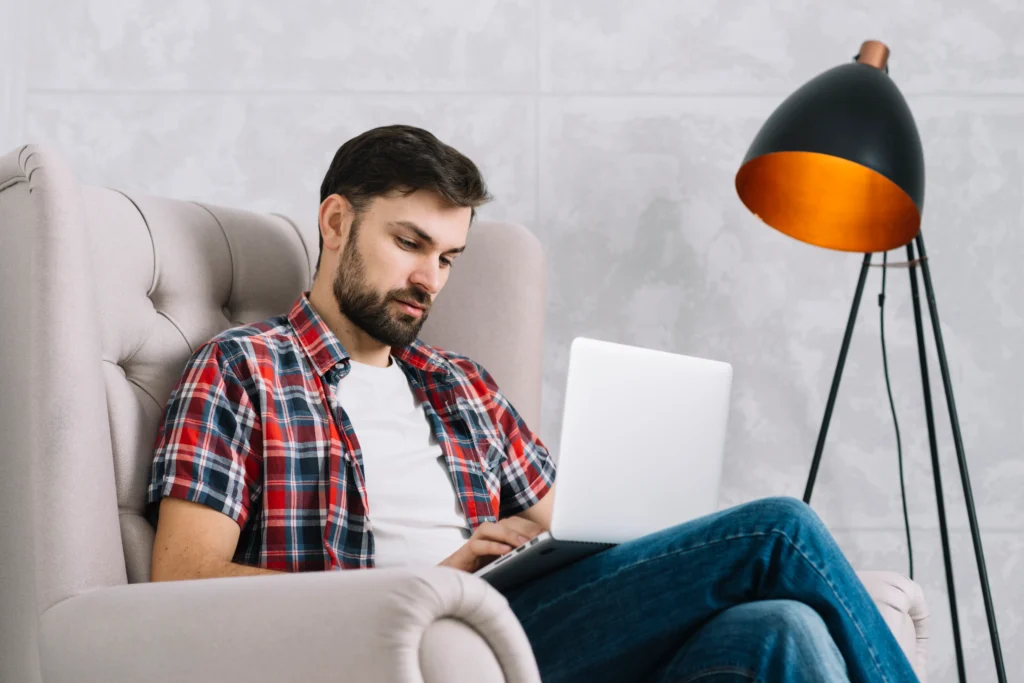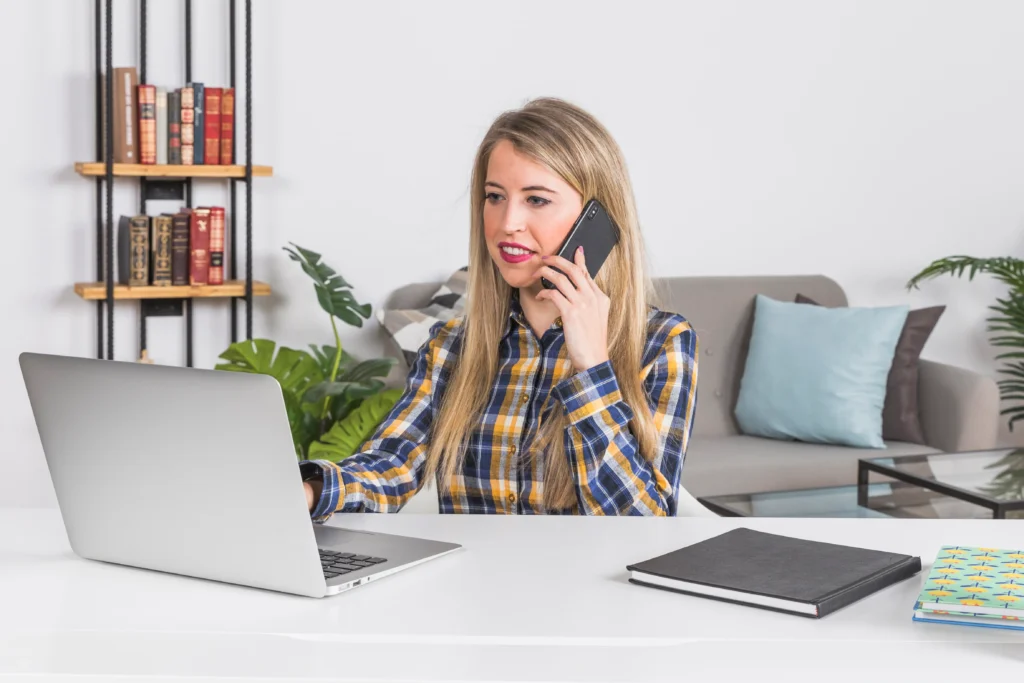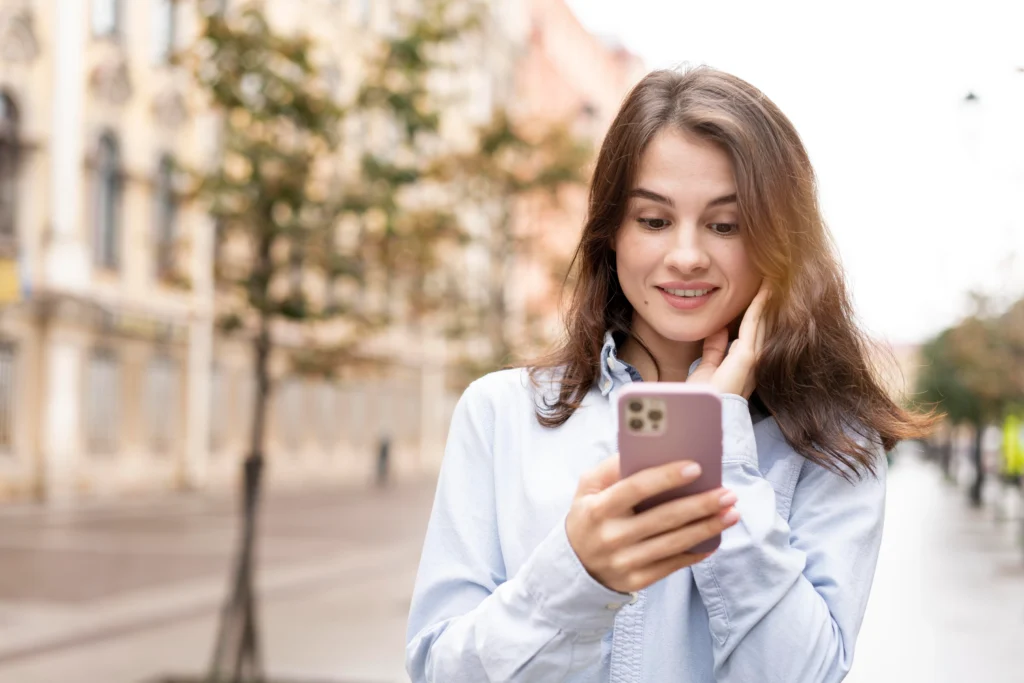Think all used iPhones are risky or low-quality? You’re not alone—but that’s a big misconception. Buying second-hand can actually save you hundreds without sacrificing quality—if you know what to look for. In this guide from InvestoDock, I’ll walk you through everything from spotting red flags to finding the best places to buy used phones, backed by personal lessons and real-life tips. By the end, you’ll know exactly how to buy smart, avoid scams, and get the most value for your money.
What is the Difference Between Used, Refurbished, and Certified Refurbished Phones?
So here’s a confession—I used to think all second-hand phones were the same. Whether it was a random listing from someone trying to sell their old phone or a shiny “certified refurbished” label on a store shelf, it all looked like used iPhones to me. But oh, how wrong I was.
Definitions and Distinctions
Let me break it down for you like I wish someone had for me:
- Used iPhone: This is a phone someone owned and is now reselling as-is. It might have scratches, no warranty, and the battery may be halfway to retirement. You’re buying it based on trust—or luck.
- Refurbished iPhone: These are used cell phones that have been repaired, cleaned, tested, and sometimes upgraded. They may come with limited warranties and are generally more reliable than used ones off the street.
- Certified Refurbished: Think of this as the VIP of refurbished iPhones. Apple or an authorized company has inspected, replaced parts if needed, and packaged it almost like new—with a real warranty to back it up.
Pros and Cons of Each
Here’s what I learned after buying (and regretting) a used iPhone off a shady website:
- Used phones: Cheaper, but riskier. You might score a deal… or a paperweight.
- Refurbished: A bit pricier, but you get tested hardware and peace of mind.
- Certified Refurbished: Slightly more expensive, but comes with a warranty and trust.
When Each Type Makes the Most Sense
- Buy a used iPhone if you’re on a tight budget and can test the phone in person.
- Go for a refurbished iPhone if you want balance—lower price, decent condition, some coverage.
- Choose a certified refurbished model if you care about warranty, quality, and still want to save money compared to buying new.
Honestly, understanding these differences saved me from wasting money. If you’re wondering about the best places to buy used phones, stick around—I’ve learned the hard way where to shop and where to run.
Is It Safe to Buy a Used iPhone? What to Know First
I’ll be real with you—the first time I decided to buy a used iPhone, I was nervous. All I could think about were horror stories: locked phones, fake screens, batteries that barely last a TikTok scroll. But here’s what I’ve learned after a few mistakes and some wins.
Common Concerns
The top worries? These:
- The phone is blacklisted due to IMEI issues.
- It has fake parts like third-party screens or knockoff batteries.
- It’s been through water damage and someone slapped a case on it to hide the evidence.
Yep, I’ve seen it all. One used iPhone I got on Craigslist worked great—until it died in the rain because it had no water seals left.
Apple’s Stance on Refurbished Phones
Now, when it comes to refurbished iPhones, Apple plays it differently. Their certified units go through strict tests, get genuine parts, and come with a warranty. That’s why people trust them. They’re not just selling used cell phones—they’re offering a safer middle ground.
Real Risks vs. Myths
Truth is, the risks are real—but avoidable. If you buy from the right place (more on that soon), check the IMEI, and ask for a return policy, you’ll likely be fine. The myth that all used iPhones are junk? That’s just fear talking.
Sometimes, the savings are worth the homework.
Watch also: How Much Mobile Data Do You Really Need? A Complete Guide to Usage, Saving, and Choosing the Right Plan
8 Best and Most Trusted Places to Buy a Used iPhone in 2025
I’ve bought from sketchy sellers and I’ve bought from rock-solid platforms. Let me save you the trouble. Here are eight of the best places to buy used phones that won’t leave you with a busted screen and regrets.
1. Apple Certified Refurbished
If you want that “new phone” feel without paying full price, start with Apple’s Certified Refurbished program. Every refurbished iPhone is tested, repaired with genuine parts, cleaned, and repackaged in a new box—with a one-year warranty included. That’s rare. It’s pricey compared to other used iPhones, but you’re basically getting an Apple-backed device, minus the brand-new markup.
Pros: Like-new condition, full warranty
Cons: Not always the cheapest
Return Policy: 14-day free returns
2. Amazon Renewed
Amazon Renewed is my go-to when I want a balance between quality and affordability. These used cell phones are inspected and tested by qualified suppliers. Many even come with a 90-day Amazon Renewed Guarantee. It’s a solid way to buy a used iPhone without stressing about sketchy sellers.
Pros: Great return policy, Prime shipping
Cons: Quality can vary between sellers
Return Policy: 90 days with Amazon Renewed Guarantee
3. Swappa
Swappa is a marketplace where real people sell directly to each other—but Swappa has strict rules. No broken devices allowed. Every listing is reviewed, and IMEI numbers are checked to avoid blacklisted phones. I like that you can see seller ratings, and communication is open.
Pros: Direct deals, active community
Cons: No warranties unless seller offers it
Return Policy: Depends on the seller, but PayPal protection helps
4. Gazelle
Gazelle has been around forever in the used iPhone world. They sell inspected and tested phones with clear grading (good, fair, excellent). While their prices aren’t the lowest, the buying process is straightforward, and you can usually get extended warranties through third parties.
Pros: Reliable quality, clear device grading
Cons: Limited stock, slightly higher prices
Return Policy: 30-day return window
5. Decluttr
Decluttr is a newcomer on my radar, but I’ve been impressed. They specialize in buying and reselling used cell phones, and every phone goes through 70+ checks before sale. Prices are often cheaper than Amazon or Gazelle, and you still get a 12-month limited warranty.
Pros: Competitive prices, warranty included
Cons: Limited high-end models
Return Policy: 14 days, no questions asked
6. Back Market
Back Market feels like the underdog in the refurbished iPhone space, but it punches above its weight. It connects you with certified refurbishers offering solid deals and excellent quality control. Plus, they back everything with a one-year warranty and 30-day money-back guarantee. It’s like Apple Certified… with better pricing.
Pros: Strong warranties, solid vetting
Cons: Can be overwhelming with so many options
Return Policy: 30 days
7. eBay
Ah, the wild west of buying used iPhones. eBay can be gold or garbage—it all depends on the seller. Stick to sellers with high ratings and verified returns. Look for listings marked “refurbished” with warranty or money-back guarantees. I’ve found some steals here, but only after lots of digging.
Pros: Huge selection, great deals
Cons: Riskier if you don’t research
Return Policy: Varies by seller, but PayPal protection helps
8. Your Wireless Carrier
Don’t overlook your own carrier. Companies like Verizon, T-Mobile, and AT&T offer refurbished iPhones or certified pre-owned models with payment plans and return windows. I grabbed one on a promo and paid monthly with zero interest. Sweet deal if you’re already upgrading or switching carriers.
Pros: Monthly payments, support included
Cons: Locked to the carrier (usually)
Return Policy: Typically 14–30 days
Watch also: Is Amazon Prime Worth It in 2025? Full Cost Breakdown, Benefits, and Insider Tips
Key Questions to Ask Before Buying a Used or Refurbished iPhone
If there’s one thing I wish I had done before I rushed to buy a used iPhone, it’s ask more questions. Trust me, skipping this step can turn what looks like a deal into a total nightmare. Whether you’re looking at refurbished iPhones or just browsing used cell phones online, here are the must-ask questions to protect yourself and your wallet.
Is the phone unlocked or carrier-locked?
This one burned me hard once. I bought what I thought was a great deal, only to realize the iPhone was locked to a carrier I didn’t even use. Always ask—and test—if the phone is unlocked before paying. If you’re buying from a site, it should clearly list the status.
Has the device been repaired?
Some repairs are fine—like a battery or screen replacement—if done properly. But cheap fixes with fake parts? Huge red flag. Ask if the used iPhone has been repaired and whether genuine Apple parts were used.
Is the IMEI or serial number valid and clean?
Ask for the IMEI or serial number and run it through Apple’s site or IMEI checkers. You want to confirm it’s not blacklisted or still tied to a payment plan. If the seller hesitates to give it—walk away.
Any signs of water or physical damage?
I once bought a used iPhone that looked perfect… until it randomly shut off. Turns out it had hidden water damage. Always inspect the device in good lighting. Look for corrosion in ports or screen discoloration.
What warranty or return policy is offered?
Never, ever skip this. The best places to buy used phones usually offer at least 14 to 30 days of return time. If there’s no warranty, you better be getting it for a deep discount—or rethink the deal.
These five questions saved me from more disasters than I can count. And when in doubt? Ask one more time—or walk away.
How to Verify the Authenticity and Condition of a Used iPhone
Before you buy a used iPhone, you need to treat it like you’re inspecting a used car. I learned that the hard way when I skipped checking the IMEI—and ended up with a phone still tied to someone else’s iCloud account. Yikes.
How to check IMEI and activation lock
Go to Settings > General > About and write down the IMEI or serial number. Then, use Apple’s website or an IMEI checker to confirm the phone isn’t blacklisted or still linked to someone else. Also, make sure Activation Lock is off. If it’s on, walk away—seriously.
Physical inspection guide
Look at the body—check for dents, cracks, and loose buttons. Open the SIM tray and inspect it for water damage indicators (red means trouble). Use a flashlight to check the charging port and speakers for dirt or corrosion. I’ve skipped this before and ended up with a charging issue that cost more than the phone was worth.
Battery health, screen, camera, etc.
Open Settings > Battery > Battery Health and make sure it’s above 80%. Test the camera front and back, check Face ID or Touch ID, and swipe through every screen. If the touchscreen feels weird or lags—don’t trust it. A used iPhone should still feel snappy and solid.
It takes 5–10 minutes to verify everything, but it could save you hundreds later. Trust me—do the checks before you commit.
Red Flags to Watch Out For When Buying Used Phones
Let me be blunt—if a used iPhone deal looks too good to be true, it probably is. I’ve fallen for the “barely used, perfect condition” trap more than once, and it cost me time, money, and patience.
- Unusually low prices: If the price is way below market value, ask yourself why. It could be stolen, damaged, or fake.
- No return policy: If a seller refuses returns, that’s a huge red flag. The best places to buy used phones always offer at least a short return window.
- Poor seller ratings or vague descriptions: Read reviews. If others complain or the listing feels generic, don’t trust it.
- Modified or jailbroken devices: Jailbreaking voids warranty and opens the door to tons of issues. Always ask if the phone is modified—and avoid it if it is.
When you’re ready to buy a used iPhone, these warning signs can help you avoid regret later. I’ve learned the hard way, but you don’t have to.
Best Practices and Tips for Buying Used iPhones Online
Buying a used iPhone online doesn’t have to feel like gambling—if you follow a few smart rules. After a few wins (and some embarrassing fails), here’s what I swear by now:
- Always buy from sellers with strong ratings: I never buy from anyone with less than 4 stars or 95% positive feedback. Ratings don’t lie.
- Stick to platforms with buyer protection: Marketplaces like eBay, Amazon, or Swappa offer some kind of guarantee. If something goes wrong, you have backup. Avoid random Facebook sellers—trust me.
- Double check warranty and return terms: Before you pay, check the fine print. Can you return it? Is there a warranty? The best places to buy used phones are upfront about this stuff.
When I stick to these tips, I actually enjoy the process. You can buy a used iPhone with confidence—you just have to be smart about it.
When Buying Used Doesn’t Make Sense
Sometimes, it’s just better to skip the used iPhone route. If the price difference between new and refurbished iPhones is small, you might as well go new and get full warranty and support.
Also, if you’re someone who needs the latest features—like top-tier camera tech or the newest chip—used cell phones might not cut it. In those cases, it’s smarter to invest in the newest model directly from Apple or a trusted carrier.
Bottom line? Buy a used iPhone only when it offers real savings or you don’t mind missing out on the latest bells and whistles.
Conclusion
Buying a used iPhone can be a smart move—if you do it right. Always check the IMEI, look for trusted sellers, and never ignore the return policy or warranty details. The best places to buy used phones will protect you just as much as they save you money.
Don’t rush. Ask the right questions, inspect everything, and trust your gut. Refurbished iPhones can offer amazing value, but only if you know what to look for.
Frequently Asked Questions
What to ask before buying a used iPhone?
Always ask if the used iPhone is unlocked, if it’s been repaired, and whether the IMEI is clean. Check for water damage and make sure there’s a return policy. These questions can save you from buying a bad phone—or worse, a stolen one.
What is the most trusted place to buy an iPhone?
Apple Certified Refurbished is the safest bet for quality and warranty. But platforms like Amazon Renewed, Swappa, and Back Market also rank among the best places to buy used phones if you want solid deals with some protection.
Is a 2nd hand iPhone worth buying?
Absolutely—if you buy smart. A well-checked used iPhone from a reliable seller can save you big money. Just avoid deals that seem too good to be true, and always verify the phone’s condition and history.
What should I check before buying a new iPhone?
Even with new phones, check warranty status, model compatibility with your carrier, and storage capacity. But if you’re going for refurbished iPhones, do all the checks: IMEI, battery health, screen, camera, and return policy.







